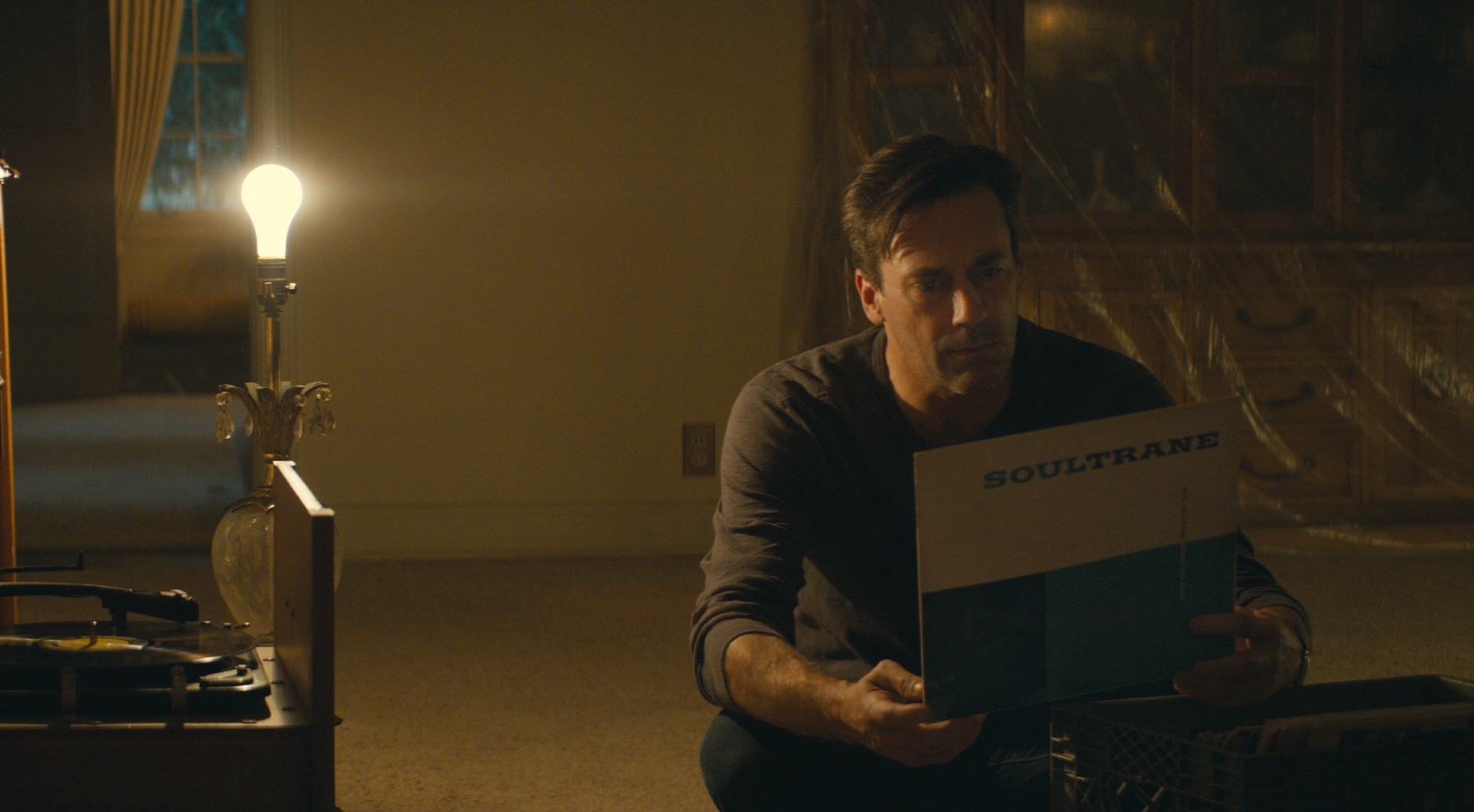Nostalgia: a daisy-chain narrative about the power of objects
By Karen Gordon
Rating: B-minus
We’re here for a relatively short time and when we go, we leave stuff. What that stuff means to the people left behind is the framework of the movie Nostalgia.
Directed by Mark Pellington (who co-wrote it with Alex Ross Perry), Nostalgia is a beautifully cast ensemble film that follows characters in a kind of slow motion relay. One character interacts with others, and after a time, we follow one of those characters in their interaction with someone else – each exchange moving the story forward on the power of possessions.
Jon Hamm is a Vegas collector assessing his parents' belongings in Nostalgia
The movie starts with a sad eyed insurance adjuster played by John Ortiz. Immaculately dressed, and with the earnest demeanour of a minister, he visits peoples’ homes to assess the value of their goods or those of a deceased or dying family member.
Inevitably feelings and frustrations are poured out to him. His visits inspire people to be reactive, trying to reason out and to come to terms with dire circumstances.
It’s not all death and destruction. Sometimes there’s relief. But the circumstances mean they’re grappling to find their emotional feet again, and it’s often easier to talk to a stranger about the meaning of certain objects.
Ortiz’s character is sweet, and upbeat in his own way, and sensitive. And so he listens. And although he says he’s detached, you can see that there’s a toll to talking about loss.
The narrative ball begins to roll with the assessment of the possessions of an elderly man named Ronnie (Bruce Dern), followed by a visit to Helen (Ellen Burstyn) whose house has burned down, which leads to her son Henry (Nick Offerman), and the deliverance of a prized possession – a rare baseball – to Will (Jon Hamm), a dealer in Las Vegas.
Will, in turn, heads home to help his sister Donna (Catherine Keener) clean out their parents’ home (the parents having moved to a condo, leaving a hoard for to their children to deal with).
Is this parental detritus junk, or a material connection? And if so, to what? History? Legacy?
In every case, the acting is superb. Subtle reactions and emotions flash through the eyes and are immediately suppressed. Conversations reveal more than words.
Nostalgia is quiet, and slow, and slightly unfocused in its story telling. It takes a while to settle into what seems a meditation on the ideas of how we things belonging to another take on meaning. But just when it lands there, the movie shifts again, transitioning into a story of real loss and grief.
The story shifts can be a challenge. But if you stay with it, Nostalgia quietly and hypnotically weaves you into its story, looking for those objects that help us hold on to the memory of the character.
Perhaps incredibly, given the topic, Nostalgia isn’t spiritual or metaphysical. At the same time, the film also avoids suggesting that our need for the objects is purely neurotic (although that seems closer to the mark). But even at that, Pellington seems to stand back and wonder whether there’s some basic hard wired human drive that compels us to assign meaning to objects.
These are deep questions, and ones we’ll inevitably have to answer for ourselves. Grief and sadness come into our lives and we pick up and move on. It’s not the usual stuff of hit movies, but valuable nonetheless.
Nostalgia. Directed by Mark Pellington. Written by Mark Pellington and Alex Ross Perry. Starring Jon Hamm, Catherine Keener, Ellen Burstyn. Opens across Canada Friday, March 2.

